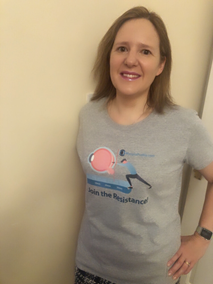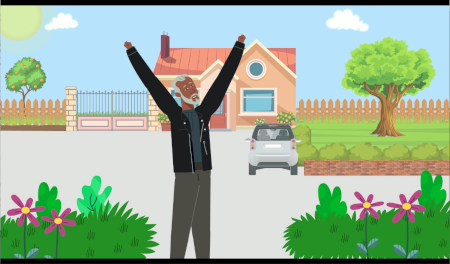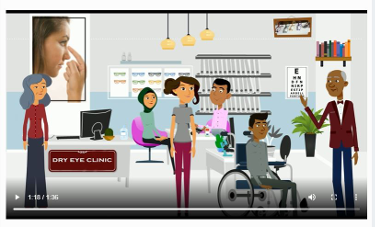|
 I am an experienced Dispensing & Contact Lens Optician with a demonstrated history of working in the optical industry for over 20 years. Graduating in Cambridge Anglia Ruskin University in 2003 and continuing my education to later qualify as a contact lens optician from Bradford.
I am an experienced Dispensing & Contact Lens Optician with a demonstrated history of working in the optical industry for over 20 years. Graduating in Cambridge Anglia Ruskin University in 2003 and continuing my education to later qualify as a contact lens optician from Bradford.
Professional Services Consultant
Currently working with Positive Impact to deliver CET (Continuing Education Training for professionals) for dry eye, punctal plugs.
I am involved in running contact lens fitting workshops for University students and professional training events. I also visit practices to train individual Eye Care Professionals in a range of dry eye and contact lens products.
Contact Lens Specialist
As a contact lens wearer myself I understand the importance of excellent comfort and vision. There is nothing more irritating than uncomfortable eyes. This all starts with assessing the surface ocular health of the eye. Treating any dry eye or similar eye disease is an important part of good contact lens wear. Then choosing the correct lens and design to ensure an optimum fit.


|
My work with both independent and multiple optical practices has given me an understanding of a wide range of contact lenses. |
I am qualified to fit anything from simple daily disposable lenses, a wide variety of multifocal lenses and specialist lenses such as Hybrid, Rigid Gas Permeable to mini-sclerals.
|
 This image is a male in his 20’s. A full time student studying astrophysics. Spending most of his time reading close work or screen work his eyes have become dry and irritated.
This image is a male in his 20’s. A full time student studying astrophysics. Spending most of his time reading close work or screen work his eyes have become dry and irritated.
The glowing areas of the cornea have been stained with a dye called fluorescein then observed using a blue light and written filter.
The image shows corneal damage due to poor tear film quality, no longer lubricating the surface well, and leading to an increased risk of further infections.
|
All great contact lens wear begins with managing the tears. |
The surface of the eye has a natural lubricant to help keep the eye clean, prevent infection and help the lids glide over the surface of the eye. Modern life has increased the prevalence of dry eye symptoms. Office environments with dry atmosphere, air conditioning and prolonged computer screen use can have challenging effects of the comfort of our eyes. Health conditions such as Rheumatoid Arthritis, menopause and even pregnancy can have an effect.
|
Attending a dry eye clinic can assess, diagnose offer treatment plans to improve the tear film making the eyes comfortable again. |
Some of the treatments available include:
- Tailored heat and eye lid massage therapy
- Tailored drops & gels to suit your individual form of tear film deficiency
- Eye lid margin debridement & expression
- Blephex Exfoliation Treatment
- Punctal Plugs – Tiny plugs to prevent the drainage of tears away from the ocular surface. This keeps the tears on the eye for longer preventing dry eye symptoms.

|
In some areas of the country the NHS funds the high street opticians to assess, diagnose and treat minor eye conditions. This may be a dry eye, corneal scratch or other eye worry.
Sadly the NHS funding is area dependent or you have the option to pay privately to see you optician instead of waiting in Eye Casualty. Many red eyes can be treated at your local optician, if referral to an ophthalmologist (Eye Surgeon) is necessary your optician may be able to direct you to a faster service.
 This photo was a patient I saw recently who scratched her eye gardening. It was treated simply with an eye gel applied 3 times a day and recovered within 1 week. The patient was seen promptly on arrival at the practice, treatment almost immediately. A one week follow up showed the abrasion to be completely healed.
This photo was a patient I saw recently who scratched her eye gardening. It was treated simply with an eye gel applied 3 times a day and recovered within 1 week. The patient was seen promptly on arrival at the practice, treatment almost immediately. A one week follow up showed the abrasion to be completely healed.
|
Recent reports show you can wait several hours in Accident and Emergency when this eye condition and many others can be assessed & treated at your local optician. |
|

|
Did you know that special contact lenses and spectacles can slow the progression of Myopia (short sight) in children? |
I am part of a group of specialist opticians who are working together to slow down the progression of myopia and save the sight of the future.
|
Myopia also known as short sight usually develops over the teenage years. |
|
Normal eye – the light is focused on the retina at the back of the eye.
|
|
Myopic eye - the light is focused before the retinaas the eye has grown too long.
|
The most common cause is because the eyeball grows too long. This is known as the axial length. As little as 0.25mm over growth can cause myopia. This prevents the light reaching the back of the eye and symptoms of blurry vision at distant objects.
The longer the axial length grows the more the structures within the eye also become stretched thin. Prescriptions over -6.00 dioptres have significantly increased risk of eye diseases such as glaucoma, early cataracts and detached retinas.
Several studies have proven that wearing special contact lenses and spectacles can slow the stimulation of the eye to grow preventing progression of myopia.
Additional training is required to fit these special lenses and part of my role is to train other Eye Care Professionals in this type of vision correction and prevention.
|
|
I am based in the East-Midlands area, if you are interested in my services please email me at: An optional Dry Eye/Blepharitis referral form for Mrs Elizabeth Ralph FBDO CL can be found here. |





